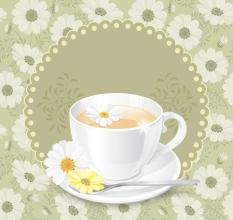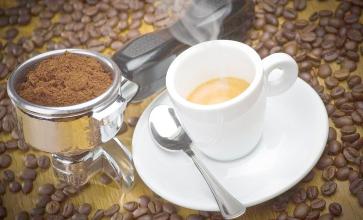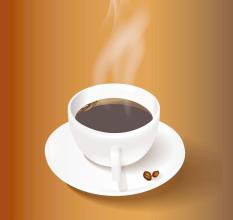Taste of Brazilian Coffee with soft Flavor introduction to boutique coffee beans in manor production area
On November 15, 1889, General Fonseca launched a coup d'état to overthrow the monarchy and establish the United States of Brazil. Under the slogan of "order and progress," the new government strengthened Brazil's modernization on the basis of a presidential system, producing three-quarters of the world's coffee and creating economic success. Later, during the Great Panic of the 1930s, the "coffee economy" suffered a painful blow, and the subsequent coups, dictatorships, and constitutional monarchies plunged politics into chaos.
In 1964, the Brazilian military coup came to power, and in 1967, the name was changed to the Federative Republic of Brazil. In March 1985, the military government returned to power. On November 15, 1989, Brazil held its first direct national elections in nearly 30 years, and Fernando Collor was elected president. On December 29, 1992, President Color was forced to resign on suspicion of bribery, and Vice President Itamar Franco took over as President on that day. Fernando Henrique Cardoso won the national election on October 3, 1994 and became Brazil's 38th President on January 1, 1995. Cardoso was re-elected on October 4, 1998. On 1 January 1999, Cardoso assumed office as the 39th President of Brazil, serving until 31 December 2002.
In October 2002, Lula, the candidate of the left-wing coalition led by the Labor Party, won the election and became the first directly elected left-wing president in Pakistan's history. In October 2006, Lula defeated the Social Democratic candidate Alkmin and won re-election. In October 2010 Dilma Rousseff won the general election as the Labour Party candidate. On May 12, 2016, the plenary session of the Brazilian Senate passed an impeachment case against President Rousseff. Rousseff will be forced to leave office for up to 180 days, during which the presidency will be represented by Brazilian Vice President Michel Temer.
Brazilian coffee refers to coffee produced in Brazil. Brazilian coffee comes in many varieties, and like other Arabica coffees, Brazilian coffee is known as
"Brazils" is distinguished from "Milds" coffee. The vast majority of Brazilian coffee is unwashed and sun-dried, and is classified according to the state of origin and port of shipment. Brazil has 21 states, 17 states produce coffee, but four of them produce the most, accounting for 98% of Brazil's total production: Parana, Sao Paulo, Minas Gerais and EspiritoSanto. Parana in the south produces the most, accounting for 50% of the total.
Low-acidity, medium-roast coffee beans from the coffee center of the world.
Brazil has been figuratively compared to the coffee world's "giants" and "kings." There are about 3.97 billion coffee trees, and small farmers now grow 75 percent of Brazil's coffee. Brazil has twice or even three times as many coffee producers as Colombia, which is the world's second-largest coffee producer.
Brazil's economy is less dependent on coffee than it used to be, with coffee accounting for only 8 - 10% of GDP. Before World War II, Brazil accounted for 50% or more of the world's coffee production, and now it is close to 30%, but the country's influence on coffee worldwide, especially on coffee prices, is significant. For example, two frosts in 1994 caused a sharp rise in global coffee prices.
Coffee production has gradually become a science since the introduction of coffee trees from Guyane française in 1720. Before 1990, the Brazilian government strictly controlled the coffee industry, with both severe interference and price protection measures, and the state has always implemented minimum price protection measures for farmers, resulting in coffee overproduction. At one point before World War II, there were 78 million bags left in stock, which had to be burned or thrown into water.
Since 1990, when the free market opened up, the former Brazilian Coffee Authority (IBC) has been replaced by a non-investment administrative body of the state, the National Economic Association, which pursues a policy of non-interference and allows producers to negotiate directly with exporters. The business activities of exporters are supervised by government legislation, and the relevant departments register legal exporters.

Important Notice :
前街咖啡 FrontStreet Coffee has moved to new addredd:
FrontStreet Coffee Address: 315,Donghua East Road,GuangZhou
Tel:020 38364473
- Prev

Taste characteristics of Nicaraguan coffee with mellow flavor introduction to boutique coffee in manor producing area
Sandino National Liberation Front: the ruling party. Established on July 23, 1961, mainly composed of workers, farmers and intellectuals, it waged a long armed struggle to overthrow the military dictatorship of Somoza. He was in power from July 1979 to April 1990. He won the general election in November 2006 and returned to power after 16 years of loss of power. Won again in the general election in November 2011 and remained in power. Total
- Next

Introduction to the characteristics of the manor producing area of Colombian boutique coffee beans with strong taste
The land of the District of Columbia [2] originally came from Maryland and Virginia. When the District of Columbia was founded, the north bank of the Potomac River included Georgetown (Georgetown,D.C.), Washington City (Washington City,D.C.) and Washington County (Washington County,D.C.). In 1878, the three places merged into Washington, D.C., and the city of Washington.
Related
- Detailed explanation of Jadeite planting Land in Panamanian Jadeite Manor introduction to the grading system of Jadeite competitive bidding, Red bid, Green bid and Rose Summer
- Story of Coffee planting in Brenka region of Costa Rica Stonehenge Manor anaerobic heavy honey treatment of flavor mouth
- What's on the barrel of Blue Mountain Coffee beans?
- Can American coffee also pull flowers? How to use hot American style to pull out a good-looking pattern?
- Can you make a cold extract with coffee beans? What is the right proportion for cold-extracted coffee formula?
- Indonesian PWN Gold Mandrine Coffee Origin Features Flavor How to Chong? Mandolin coffee is American.
- A brief introduction to the flavor characteristics of Brazilian yellow bourbon coffee beans
- What is the effect of different water quality on the flavor of cold-extracted coffee? What kind of water is best for brewing coffee?
- Why do you think of Rose Summer whenever you mention Panamanian coffee?
- Introduction to the characteristics of authentic blue mountain coffee bean producing areas? What is the CIB Coffee Authority in Jamaica?

